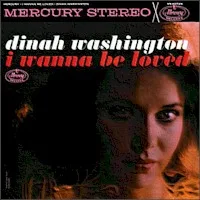Time: 32:21
Size: 74.1 MB
Styles: Brazilian jazz
Year: 2009
Art: Front
[4:30] 1. Aquelas Coisas Todas
[4:25] 2. Like Water
[3:30] 3. Frevo
[3:18] 4. Curumim
[4:13] 5. Lazy Afternoon
[3:57] 6. Afoxamba
[4:19] 7. Bossa For Copacabana
[4:06] 8. Spring
Anne Drummond: flute; Klaus Mueller: piano (1-7); Xavier Davis: piano (8); Paul Meyers: guitar (2, 5); Nilson Matta: bass (3, 6, 7, 8); Duduka Da Fonseca: drums (3, 6-8) and percussion (1, 7): Tom Chiu: violin (2, 5, 6, 8); Dave Eggar: cello (1, 2, 5, 6, 8).
Listening to vibraphonist Stefon Harris's outstanding African Tarantella (Blue Note, 2006), flautist Anne Drummond's work can often fly under the radar. Her importance on these recordings, however, can't be overstated: she often provides the textural glue that makes the group gel, and the only reason her fine flute work might not be more obvious is because of the lack of solo space she is given. Like Water, her debut as a leader, emphasizes the gentler side of Brazilian jazz. While plenty of people might feel the need to fill up a CD and play as much as possible to prove themselves on their first album, Drummond is comfortable in her skin and values the group dynamic over the individual on this concise, thirty-two minute recording. Performing with Kenny Barron's Canta Brasil provided the seeds of inspiration for this project, and two key performers from the pianist's group, bassist Nilson Matta and drummer/percussionist Duduka Da Fonseca, are along for the ride here.
Drummond wrote three pieces for the album and co-wrote another ("Spring") with Mark Bordenet. The title track benefits from her warm and unobtrusive string arrangement, with guitarist Paul Meyers adding some beautiful solo work and the flautist graceful and tender throughout. Meyers appears one last time on "Lazy Afternoon," and pianist Klaus Mueller provides a gentle and soothing piano solo. The rhythm section joins in on "Afoxamba," with Da Fonseca and Matta providing an instantly appealing, authentic groove. Drummond's joy and energy is immediately noticeable and her playing is passionate throughout. The blend between the pizzicato string line, at the outset of "Spring," and the rest of the musicians is intoxicating. Pianist Xavier Davis makes his lone appearance here, providing a touching solo.
The four other pieces are, for the most part, bright and bouncy. Toninho Horta's "Aquelas Coisas Todas" opens the album, with Drummond's flute sounding vibrant and fresh as she glides over the rhythm men. Egberto Gismonti's "Frevo" is three-and-a-half minutes of musical magic; Drummond's playing is electric, and her blend and chemistry with Mueller is astounding. Whether he's running through a unison rhythmic line with Drummond, comping behind her or playing his own solo, Mueller is always exhilarating. "Curumin" is a flute and piano duo performance that further highlights the rapport between Drummond and Mueller. Matta's "Bossa for Copacabana" is a subtle, gently gliding piece that benefits greatly from Da Fonseca's touch and feel. Whether interpreting her own works or other compositions, Drummond demonstrates a unified vision and strong melodic sense throughout Like Water. ~Dan Bilawsky
Listening to vibraphonist Stefon Harris's outstanding African Tarantella (Blue Note, 2006), flautist Anne Drummond's work can often fly under the radar. Her importance on these recordings, however, can't be overstated: she often provides the textural glue that makes the group gel, and the only reason her fine flute work might not be more obvious is because of the lack of solo space she is given. Like Water, her debut as a leader, emphasizes the gentler side of Brazilian jazz. While plenty of people might feel the need to fill up a CD and play as much as possible to prove themselves on their first album, Drummond is comfortable in her skin and values the group dynamic over the individual on this concise, thirty-two minute recording. Performing with Kenny Barron's Canta Brasil provided the seeds of inspiration for this project, and two key performers from the pianist's group, bassist Nilson Matta and drummer/percussionist Duduka Da Fonseca, are along for the ride here.
Drummond wrote three pieces for the album and co-wrote another ("Spring") with Mark Bordenet. The title track benefits from her warm and unobtrusive string arrangement, with guitarist Paul Meyers adding some beautiful solo work and the flautist graceful and tender throughout. Meyers appears one last time on "Lazy Afternoon," and pianist Klaus Mueller provides a gentle and soothing piano solo. The rhythm section joins in on "Afoxamba," with Da Fonseca and Matta providing an instantly appealing, authentic groove. Drummond's joy and energy is immediately noticeable and her playing is passionate throughout. The blend between the pizzicato string line, at the outset of "Spring," and the rest of the musicians is intoxicating. Pianist Xavier Davis makes his lone appearance here, providing a touching solo.
The four other pieces are, for the most part, bright and bouncy. Toninho Horta's "Aquelas Coisas Todas" opens the album, with Drummond's flute sounding vibrant and fresh as she glides over the rhythm men. Egberto Gismonti's "Frevo" is three-and-a-half minutes of musical magic; Drummond's playing is electric, and her blend and chemistry with Mueller is astounding. Whether he's running through a unison rhythmic line with Drummond, comping behind her or playing his own solo, Mueller is always exhilarating. "Curumin" is a flute and piano duo performance that further highlights the rapport between Drummond and Mueller. Matta's "Bossa for Copacabana" is a subtle, gently gliding piece that benefits greatly from Da Fonseca's touch and feel. Whether interpreting her own works or other compositions, Drummond demonstrates a unified vision and strong melodic sense throughout Like Water. ~Dan Bilawsky
Like Water










